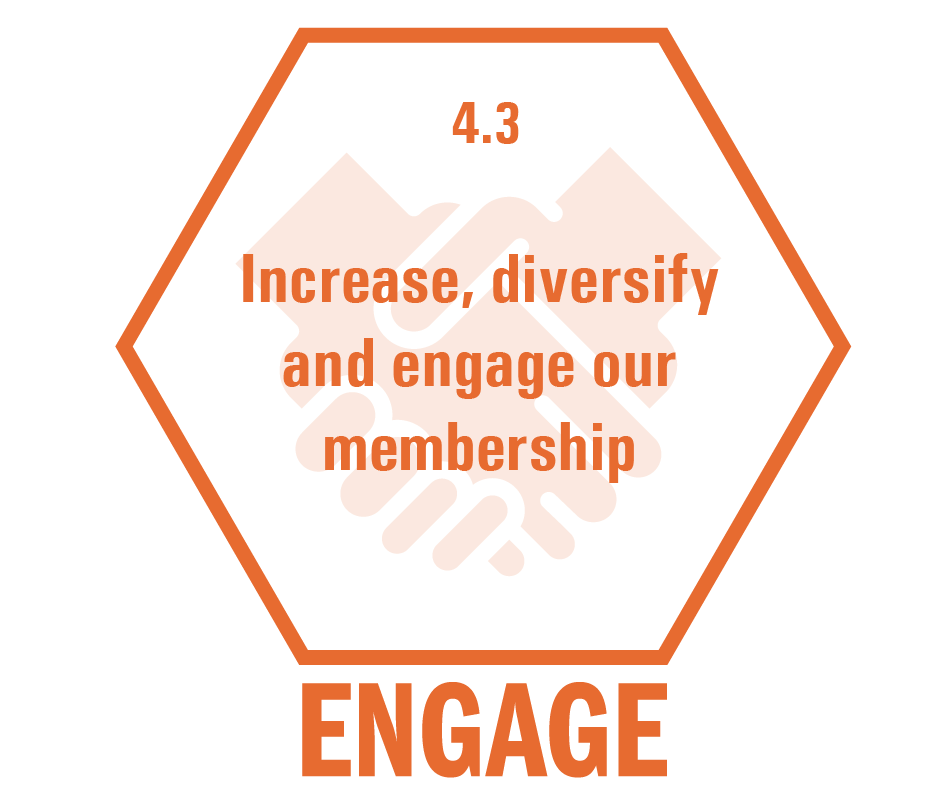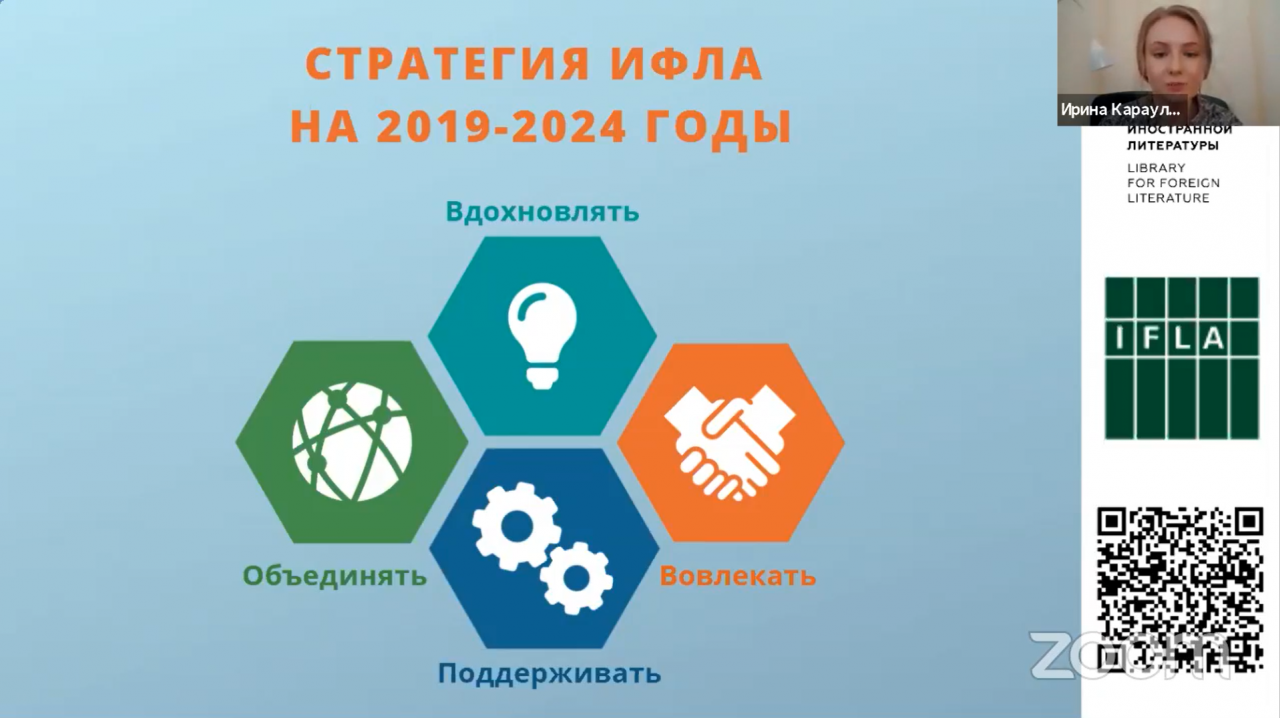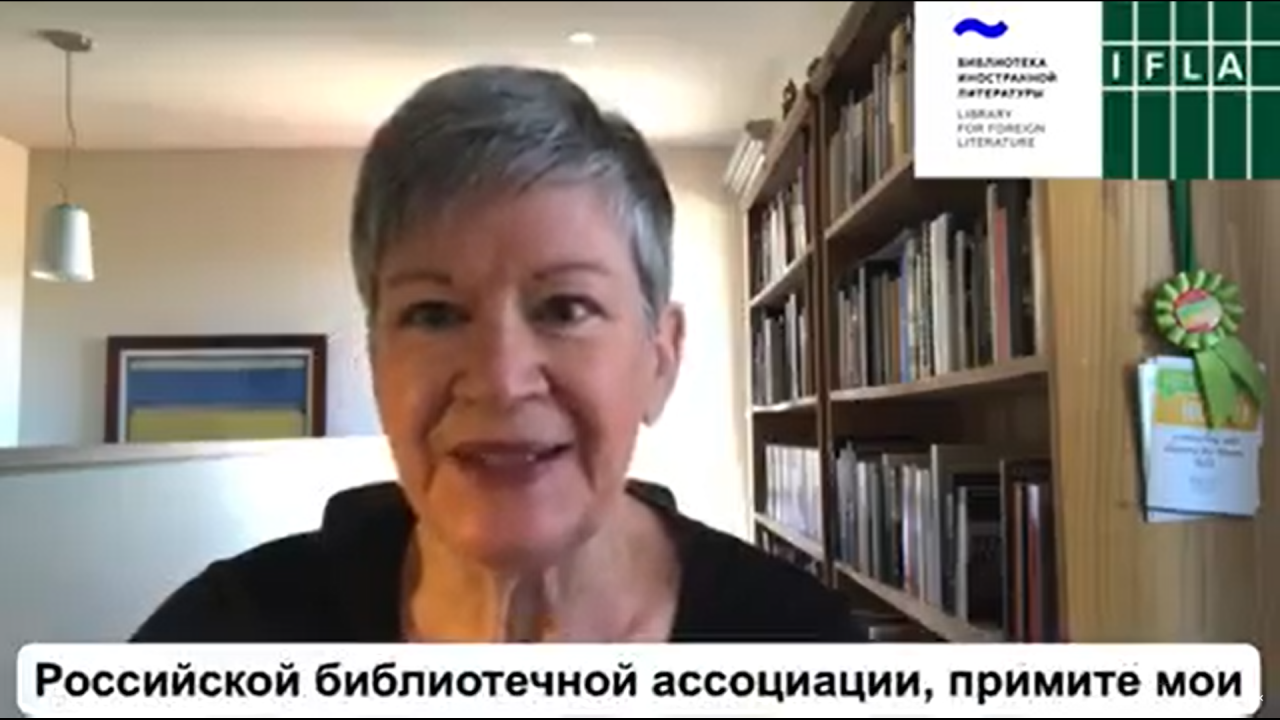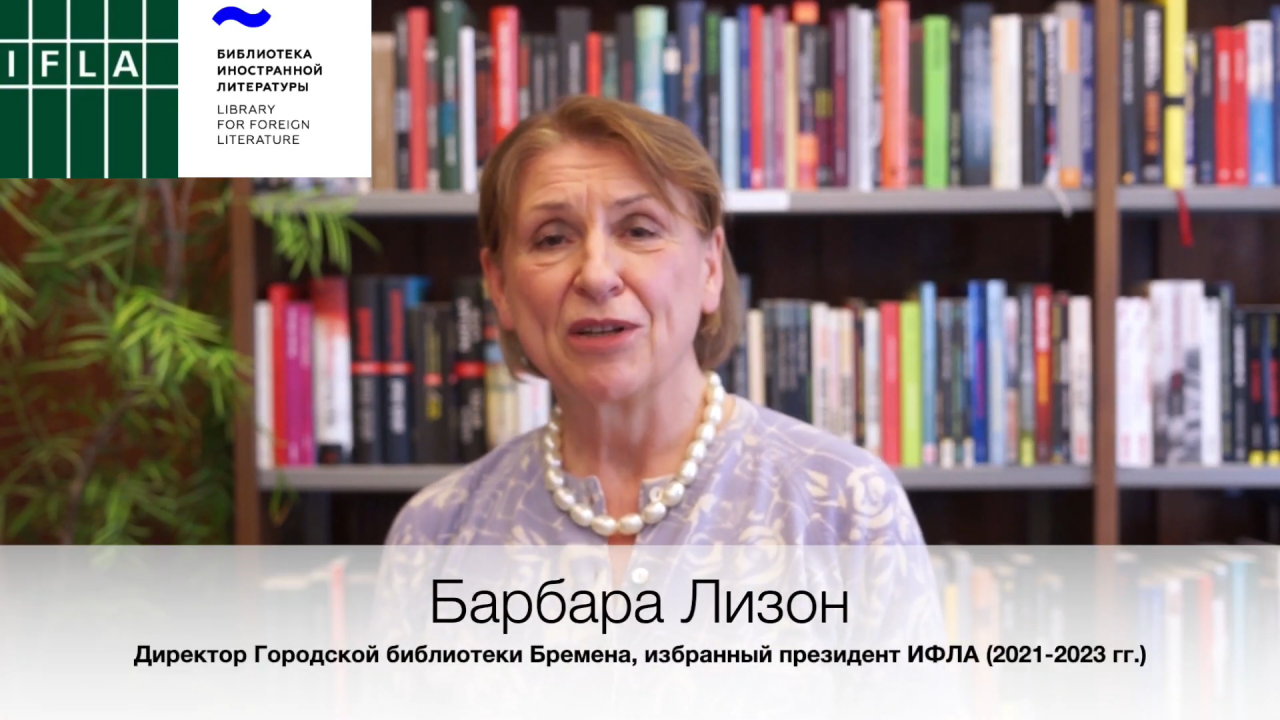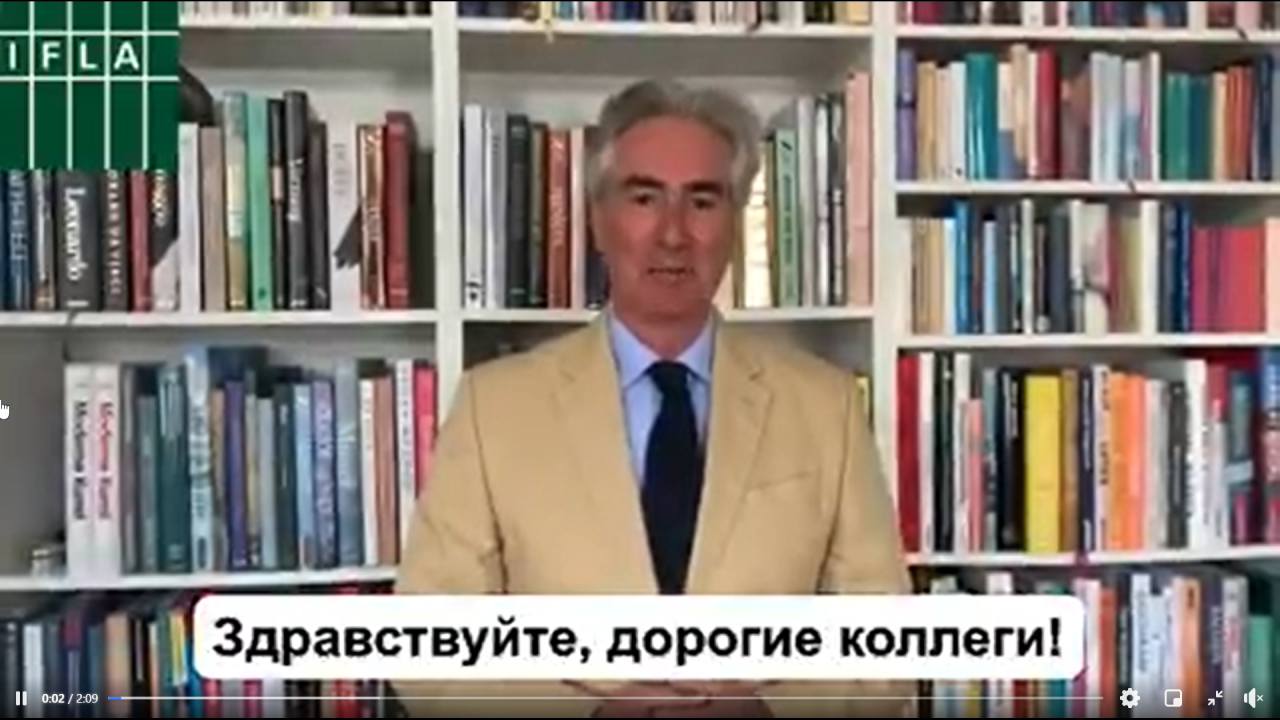Russian libraries + IFLA Strategy: next generation library system
05 February 2021
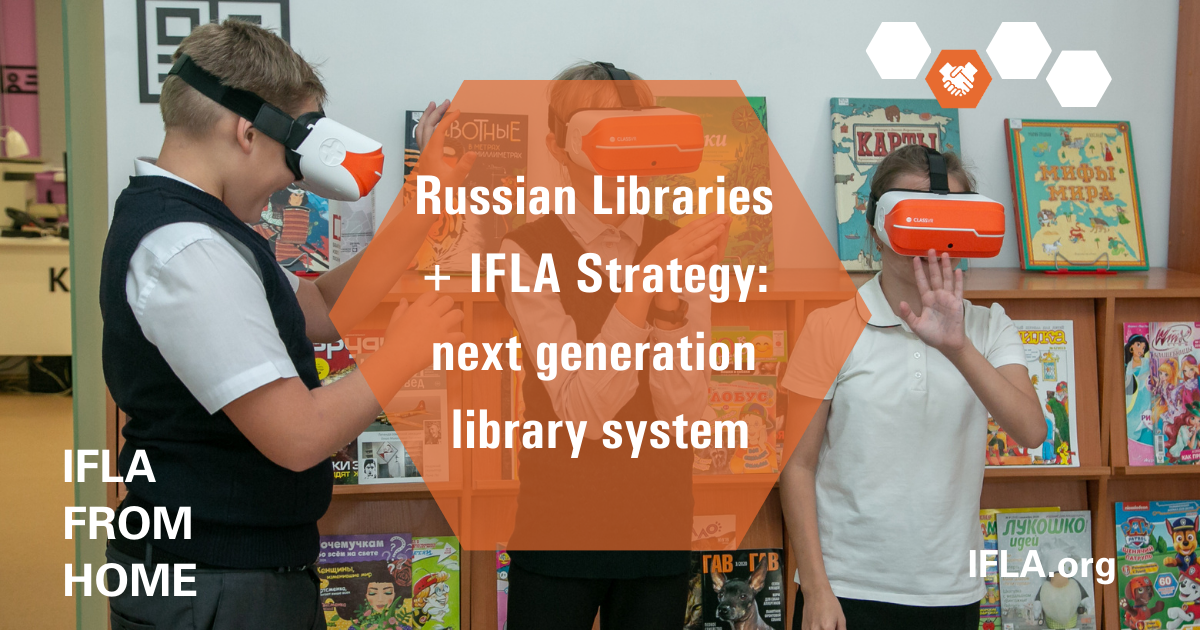
Closely aligned to the IFLA Key Initiatives 3.3. “Empower the field at the national and regional levels” and 4.3 “Increase, diversify and engage our membership” the Russian library field has been impressively overcoming the challenges connected to the COVID-19 pandemic and continues to implement national and regional projects of immense importance successfully.
The pandemic created new challenges for libraries, throwing them into the digital world and making them rethink their strategies and how they work with their communities. It also highlighted the burning need for new competencies among library staff, and changes in LIS education strategies and the ways in which knowledge is shared.
Faced with this radically different situation, the Russian Library Association (RLA) took up the challenge of empowering the field and strengthening the voice of libraries, becoming an umbrella for various outstanding initiatives. Through this, it is delivering on IFLA’s goal to strengthen the library field at national and regional levels (Key Initiative 3.3 of the IFLA Strategy 2019-24).
In this context, Libraries of New Generation, a unique project that is being implemented within the framework of the National Project “Culture” aims to modernise 787 Russian libraries over a period of 5 years (2019-2024). Despite the restrictive measures taken in connection with COVID-19, amendments have already been made not just to address the challenges, but even to broaden the project (the original number of new libraries was 660). To support this, more financial resources have been allocated by the Russian Government and the deadlines are strictly observed to make sure that all facilities will open according to the plan. The project’s objective is to help public libraries to not only transform their premises, and update their equipment and book collections, but also to create a free, creative and accessible space for their communities that can be used as an informational, educational and social center.
With the Russian Government having allocated 5.18 billion rubles (about 70.5 million US dollars) to this project, 306 libraries in 73 regions of Russia have already been modernised and opened to the public up to now. The RLA provides support to the main office of the project (Russian State Library) to balance all necessary components, using best IFLA practices.
Moreover, in December 2020, the RLA Section on International Cooperation held a special meeting “Russian Libraries in IFLA: New Formats of Participation”. Russian librarians discussed the IFLA Strategy 2019-2024; changes in IFLA’s governance; the results of the recent General Assembly; news from various IFLA sections; and possible formats of participation in an online WLIC.
Svetlana Gorokhova, RLA Governing Board member, highlights the impact of IFLA’s transformation on their work:
The RLA has been inevitably influenced by the recent revolutionary changes undertaken by IFLA. We wanted to bring our members closer to the RLA’s decision making processes, therefore a new version of the RLA Statutes was recently passed by the general online voting of the RLA members. The changes include the introduction of individual membership; limitation of number of terms for the RLA President and Board Members (no more than two consecutive terms of 4 years); 50% quorum of the RLA members to make a decision (25% in old version); and the admission of new members by the RLA Board, not by the general assembly. So, we may say that, together with IFLA, we made further steps to optimize our professional organization. IFLA has managed to create a great professional framework and human network to rely on. And all that in order to make our work meaningful, structured and effective.
To rephrase a Russian saying – Libraries united will never fall.”
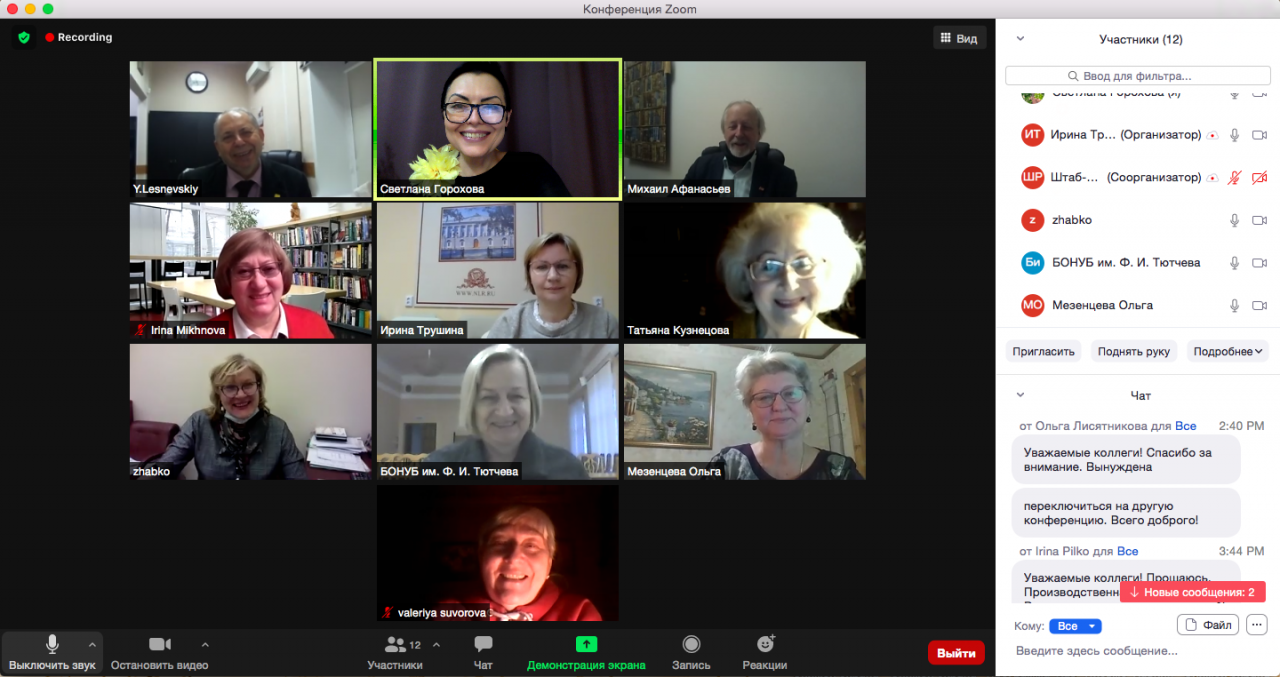
The IFLA Strategy has also inspired young Russian library professionals and has served as a basis for numerous projects that align with the IFLA Strategy 2019-2024 developed by Russian LIS students.
A great example comes from the St. Petersburg State University of Culture LIS Department that established the volunteer squad “Postmen of goodness”. The squad is the next stage of a project called “Day of Intellectual Donation” and aims to increase the level of reading, cultural development, and emotional support among children, in cooperation with public libraries and children’s hospitals. Recently, the squad started organising the installation of movable bookshelves in children’s hospitals called “Intellectual boxes”. During the pandemic they moved to remote operation with libraries and implemented online projects for children.
Albina Krymskaya, from the Library and Information Science Department of the St. Petersburg State University of Culture mentioned:
The IFLA Strategy 2019-2024 provides a compass for LIS schools and students alike all over the world, in Russia too. Thanks to the IFLA Strategic Directions future LIS specialists are inspired, engaged, enabled and connected with the LIS profession to be heard in the global library field. Get to know more about the LIS Department of the St. Petersburg State University of Culture.”


IFLA’s leadership has a long-lasting history of engagement with the Russian library community, becoming a remarkable professional source for Russian libraries and inspiring them to continue looking for new way of serving their audiences.
Read more about the Russian library sector
- the Russian Country Profile on the Library Map of the World
- an SDG story from Russia on the Library Map of the World: Libraries in Russia transform into modern inclusive spaces to address community development issues
- an SDG story from Russia on the Library Map of the World: Children with special needs read to dogs to develop language skills at the library
Read more about the IFLA Strategy 2019-2024
How is your library or library association engaging with the IFLA Strategy? Let us know! Post on your social media, using the hashtag #IFLAStrategy and #WeAreIFLA or send an email to Despina Gerasimidou, IFLA’s Strategic Development Officer at despina.gerasimidou@ifla.org.

